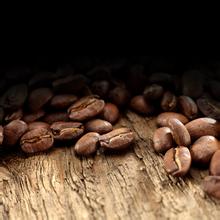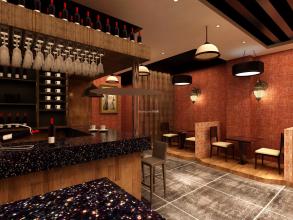Characteristics of roasting degree of Ugandan coffee beans flavor description taste treatment method
Characteristics of roasting degree of Ugandan coffee beans flavor description taste treatment method
In order to improve the quality and reduce the cost of coffee, Uganda cancelled the exclusive management right of the Coffee Management Committee (Coffee Marketing Board, referred to as CMB) in November 1990. Most of the work originally undertaken by the Coffee Management Committee has now been handed over to the cooperative organization. Privatized coffee accounts for 2% of the country's export revenue, so the government imposes a tax on coffee shops, hoping to increase much-needed revenue. But instead, coffee exports fell by 20%, and coffee smuggling became more and more serious.
Like Tanzania, the rise in coffee prices in recent years has encouraged farmers to return to their estates and reclaim once-abandoned land to grow coffee, and the Ugandan coffee industry looks promising.
Mbale on the eastern side of the Elgang Mountains and other producing areas on the western side near the border of the Democratic Republic of the Congo have the export name Wugar. The official ranks are Oaganic (Organic), Bugisu AA, Bugisu A, Bugisu B, Bugisu PB, Wugar, Drugar and other unlisted grades. To find Ugandan coffee with good performance, you must first recognize the three grades of BugisuAA, An and PB, but because the country is inland and has many transportation problems, it often comes to raw beans with low moisture content and not emerald green appearance, but Ugandan coffee is not a type of coffee that emphasizes aroma, as long as the raw beans are not and turn 100 or yellowed, they can generally have a good flavor performance in the producing areas. It has a low ripe fruit aroma, such as the taste of red wine, and a thick mellow thickness, which is similar to some Kenyan beans with low flavor, but with a mild soil flavor, so it is quite different from other East African countries in flavor characteristics. on the contrary, it is somewhat similar to Asian Indonesian Sulawesi Tonaga coffee and Java state-owned manor coffee.

Important Notice :
前街咖啡 FrontStreet Coffee has moved to new addredd:
FrontStreet Coffee Address: 315,Donghua East Road,GuangZhou
Tel:020 38364473
- Prev

Description of characteristics and Flavor of Yunnan Coffee beans A brief introduction to the varieties of Grinding scale by Taste treatment
Yunnan coffee bean characteristics flavor description grinding scale variety brief introduction to pick some fruit when ripe to trace its roots, typica originated from Ethiopia, the ancient origin of coffee, is the earliest original species of coffee, bourbon is a variety of typica, both have rich aroma and excellent taste performance, in the Arabica species also belong to a very high quality variety.
- Next

Flavor description of sun-tanned Yejiafiwaka coffee taste treatment grinding scale
The Flavor description of Yirgacheffe Coffee Coffee made in the Sun Yega Sherfera Coffee the Ethiopian Yega Xuefei Coffee, though petite, is gentle, delicate and sweet. As the hometown of coffee, thousands of years of planting history and processing tradition in Ethiopia have created high-quality washed Arabica beans. Light baking has unique lemon, floral and honey flavors.
Related
- Detailed explanation of Jadeite planting Land in Panamanian Jadeite Manor introduction to the grading system of Jadeite competitive bidding, Red bid, Green bid and Rose Summer
- Story of Coffee planting in Brenka region of Costa Rica Stonehenge Manor anaerobic heavy honey treatment of flavor mouth
- What's on the barrel of Blue Mountain Coffee beans?
- Can American coffee also pull flowers? How to use hot American style to pull out a good-looking pattern?
- Can you make a cold extract with coffee beans? What is the right proportion for cold-extracted coffee formula?
- Indonesian PWN Gold Mandrine Coffee Origin Features Flavor How to Chong? Mandolin coffee is American.
- A brief introduction to the flavor characteristics of Brazilian yellow bourbon coffee beans
- What is the effect of different water quality on the flavor of cold-extracted coffee? What kind of water is best for brewing coffee?
- Why do you think of Rose Summer whenever you mention Panamanian coffee?
- Introduction to the characteristics of authentic blue mountain coffee bean producing areas? What is the CIB Coffee Authority in Jamaica?

